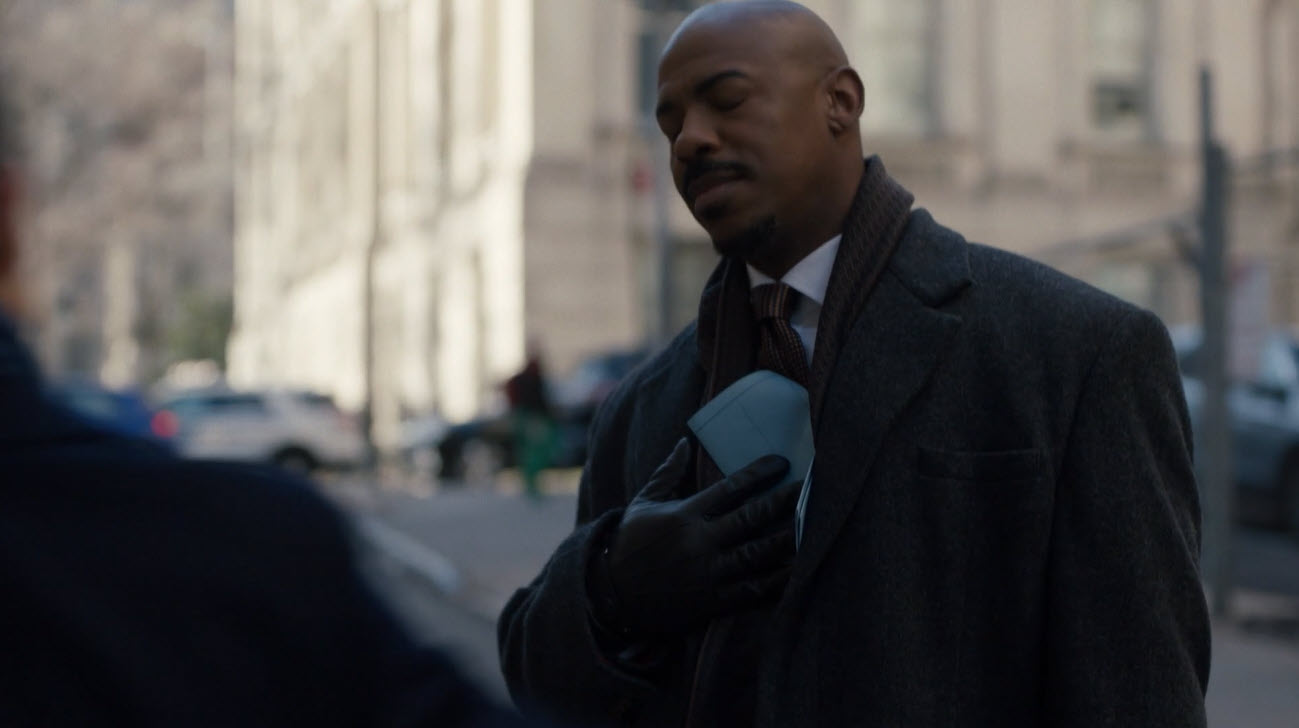On The Ledge

If you had the opportunity to watch Law and Order (S23 E6) on the last day of Black History Month, hopefully, the message was not lost on you. This episode hit hard for all the right reasons. I hope they had someone on set to help the cast and crew process. #socialwork
Without giving too much away, Detective Jalen Shaw, played by Mechad Brooks, comes across a man who is on the verge of taking his life. He talks the man out of it and gives him a card saying if he ever needs to talk, he can reach out to him.
Their paths cross later after the man has committed a crime. In court, the defense attorney calls a witness to address the issue of race-based trauma. She talked in depth about RBTS and the UnRESTS. The DA asks Det. Shaw to testify as a rebuttal witness. Det. Shaw declines with the statement that "race-based trauma is real" and suggests psychiatric treatment as an alternative to prison. The DA forces Det. Shaw to testify by pressing a subpoena to his chest in that same conversation. (stick a pin there)
In a conversation with his partner, Shaw says, "Imagine that your success, your safety, your security, your survival depends on the baggage that somebody else projects onto you, or how you make them feel." His partner uses Shaw's duty as a police officer to remind him of his obligation in court. Shaw's response knocked the wind out of me because it was so real in the lives of people who look like me. I cried with him.
Back to the UnRESTS . . . in court, the DA made a point of saying that the DSM does not recognize RBTS. The expert witness agreed and rebutted with the fact that the American Psychiatric Association recognizes RBTS, as do several national boards. The APA publishes the DSM. The APA is the group that gathers specialists and professionals from across the globe to make updates to the DSM.
What was missing from that conversation was the fact that it took 67 years for the American Psychiatric Association to apologize for its support of structural racism in psychiatry. Namely testing and treatment of minority bodies, hearts, and minds. Why is this significant? Because, the organization that produces the DSM apologized for racism, and recognizes the existence of race-based trauma, but has yet to include it as a diagnosis.
How . . . racist of them to perpetuate racism in diagnosing and treating the people experiencing something that has yet to be recognized as actually existing because . . . well, they fail to "officially" acknowledge it. That's called performative work in case you didn't know.
People like Herman, van der Kolk, and Ducey have been trying to get racialized trauma included for three decades. A lack of acknowledgment does not make what we call a "thing" simply go away. And the sensitivities to it are highly offensive. (See the 'Issa No For Me' post)
The cycle of trauma is not a circle, it's a spiral. If you're blessed, you get the opportunity to bend the cycle so it slows down enough for you to eventually break it. If not, you are at the mercy of a system that perpetuates another type of trauma simply because that is what it was created to do.
Step down from the ledge if you can . . .
Signed,
The Angry Blk Wmn
Comments are closed